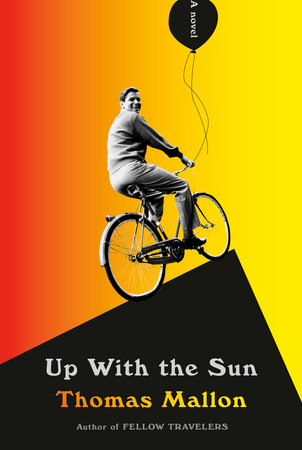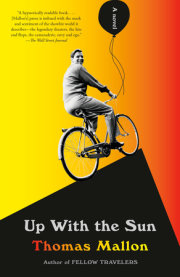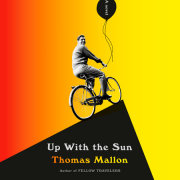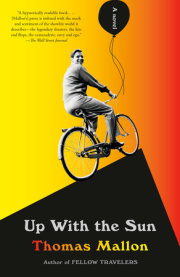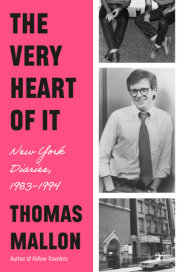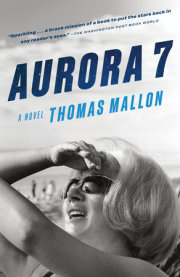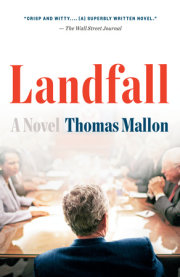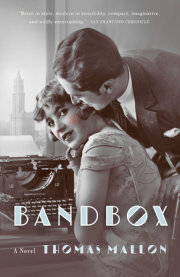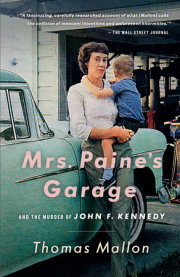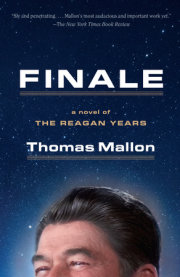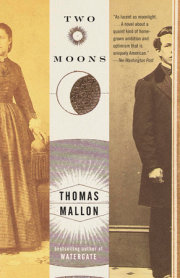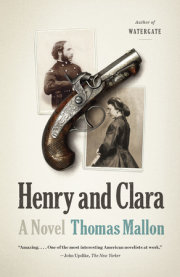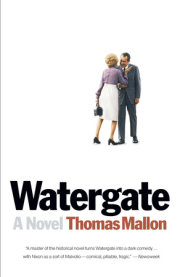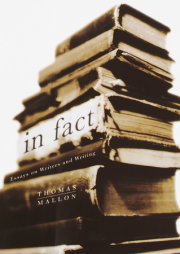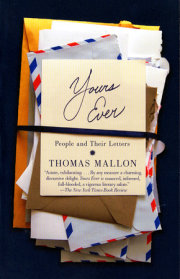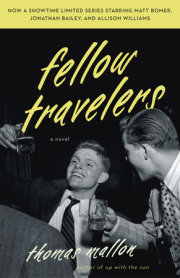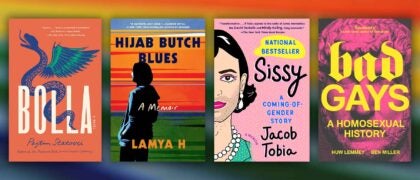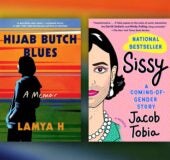Chapter 1
June 19, 1951
Flahooley had flopped and no one was that sorry, except for Matt Liannetto, who was crazy about Barbara Cook. This was her very first show, and he’d stood in the back of the theater three times during the past four weeks just to hear her sing “He’s Only Wonderful.”
But the show had closed three nights ago, and Seventeen was taking its place at the Broadhurst, getting ready to open the day after tomorrow. Right now the theater felt like a house on moving day, one family’s things going out the back door as the new arrivals’ stuff came in the front. The noise exceeded anything reasonable for a day before dress rehearsal, but Matt, who had just become the show’s pianist, didn’t mind. His patience and concentration were always good, and he loved all the grandfather clocks and front-porch swings that were starting to fill the stage. The producers hoped to draw in everyone who longed for that simpler time they thought they actually remembered, or the childhood they thought they’d actually had. Recently turned nineteen, Matt had never had much childhood at all, and he’d gladly settle for this small-town fantasy of fifty years ago coming to cardboard life a few feet above the orchestra pit.
His off-time reveries ran to such gentle fictions, and he was probably the only person inside the Broadhurst, including the director up in the balcony, who had read “the original material.” He had come upon Booth Tarkington’s novel—falling in love with the author’s name—five summers ago in the Astoria branch library.
There was no telling how long a run Seventeen would have. The notices in Boston had been good, but Matt hadn’t been with the show up there, and two days of stop-and-start piano playing, during rehearsals that never quite became a run-through, hadn’t given him a sufficient feel for the thing to make a prediction. The songs were pretty enough, but the show might get blown away like a puff of cotton candy by the street’s big, brassy mainstays: Guys and Dolls and Kiss Me, Kate and Call Me Madam were all still going strong, and The King and I had come to the St. James a couple of months ago.
Surely Kenneth Nelson, Seventeen’s slender young lead, could be knocked flat by so much as a dirty look from bare-chested Yul Brynner. Only a few years older than the lovesick boy he was playing, Nelson now went into a second tremulous rendition of “This Was Just Another Day,” the song that Tarkington’s Willie Baxter is inspired to sing after meeting Lola Pratt, the blond minx who’s come to town for the summer:
But my, oh my, oh my
The same old sky
Has turned a brand new blue . . .
As Matt looked up from the score to the stage and saw Nelson’s face, he experienced the flutter he always felt when one of these good-looking out-of-town guys with no New York accent came into his professional range of vision. He’d get tongue-tied and quiet, and they’d assume, incorrectly, that he must be hard-boiled with city sophistication. This one, he’d heard, was from North Carolina by way of Texas. In fact, a redheaded friend, a somewhat older girl named Mildred who knew Nelson from Baylor, had dropped by earlier to pay him a quick backstage visit.
The director cut Nelson off two bars from the end and ordered the dancers to assemble for another go at the previous scene, which even now, after Boston, looked ragged. Any number of things were causing problems: the finale was a confusing business, and the closest thing the show had to an eleven o’clock number was a duet for two supporting players instead of a big solo for one of the leads. “After All, It’s Spring” sounded fine, lovely even, but was so melodically predictable that when he was playing it, Matt felt able to look up from the score, however new it was to him, at least a half dozen times. In profile, the duet’s boy, Dick Kallman, appeared almost as delicately handsome as Kenneth Nelson, but when Kallman faced forward and sang full out—his clear preference—he was good-looking in an entirely different and more familiar way. He had a fine, glossy New York kisser, the kind that made you wonder: Italian? Jewish? A less perfect Tony Curtis; magnetic and mischievous.
Kallman also had a stronger, more Broadway-ready voice than Nelson’s. It was the voice of a lead, and Matt whispered as much to the first violinist when the director paused the duet after a flub by the girl.
“He tried out for Willie,” explained the violinist, who’d been with the show from the beginning.
“Why didn’t he get it?”
“You think he could play lovesick? If Lola Pratt refused him, he’d tell her to go fuck herself. Or he’d beat her to death with her parasol.”
Kallman’s performance in the duet so made up for his partner’s that the director decided they could call it a day. As everyone dispersed, they heard Dick say to the girl, as if he were still projecting for the balcony, “I’ll be ready for you in ten. Out on Forty-Fourth.” You’d think he was Tony Curtis. She gave him a “Yes, sir!” smile.
“And how about you?” he called to Matt, who was packing up his music. The two of them had been introduced yesterday morning, during a lot of regulation chaos.
“How about what?”
“How about coming along?” I’m cooking dinner for some of us at my parents’ place over in Brooklyn. They’re out of town.”
_______________
By “dinner” he didn’t mean anything simple. An hour after leaving the Broadhurst, Kenneth Nelson and Matt Liannetto—along with Ellen McCown, the girl in the duet, and Paula Stewart, a girl in the chorus who also understudied the leading lady—were watching Kallman roast a chicken, prepare acorn squash, and roll out the dough for a blueberry pie. In the course of it all, he rarely stopped talking.
“She’s no Ruth Gordon, wouldn’t you have to say?” he asked the others.
Matt had seen Ruth Gordon scads of times around the theater district, and he knew she’d played Lola in a nonmusical version of Seventeen during the First World War. But he said nothing. Miss McCown and Miss Stewart both sported expressions showing worry that somebody should be knocking their own show’s female lead.
But Kallman didn’t care what the girls or the pianist thought. It was Kenny he was trying to provoke. Making the male lead criticize his female costar would put him in a vulnerable position, and Kallman wanted him to be as vulnerable as possible. For one thing, aside from playing Joe Bullitt, Kallman was Kenneth Nelson’s understudy. And for another, Dick was secretly in love with Kenny.
Alas, Nelson didn’t seem to know who Ruth Gordon was. So there was no invidious comparison to draw, and Kallman had to settle for making the boy from Texas look like a rube.
“Really?” he asked, while he ladled some blueberry filling into the pie shell. “Never saw Over 21? Never looked at the writing credits for Adam’s Rib?”
Nelson couldn’t say he’d done either.
“Ruth Gordon’s a writer as well as an actress,” Matt explained, as matter-of-factly as he could, trying to establish that there was really no reason anyone, inside show business or out, had to know who she was.
Kallman closed the oven door and Miss McCown changed the subject. “So how’d you learn to do all this?” she asked, gesturing toward the pots on the stove. “I can’t even make toast.” She had lived in cold-water flats for the last three years, ever since coming to New York from Tennessee and getting chorus parts in Oklahoma! and Gentlemen Prefer Blondes.
“See that place on the wall?” Kallman pointed to a picture in the adjacent dining room. “My old man owns it, up in New Hampshire.” The watercolor, he explained, depicted The Balsams, in Dixville Notch, up near the Canadian border. A giant nineteenth-century resort on the order of the Greenbrier, it welcomed whole families for long summer stays. “I learned to cook in the kitchen. All the staff were happy to teach the boss’s son anything he wanted to know. Mom and Dad have been up there since high season started.” His four guests looked over at two framed photographs flanking the portrait of the hotel.
“Dad started out as a stunt flyer,” explained Kallman, in effortfully casual tones, as if remarking that his old man had once sold shoes. “Long before he bought the hotel.” Miss McCown appeared to be giving her host the benefit of the doubt, though this Brooklyn house seemed modest for a man who owned a huge resort. Both Matt and Nelson were sensing a flimsiness, or at least an elasticity, to some of Kallman’s autobiographical pronouncements.
“Are you really headed to the Ivy League?” asked Nelson. The Playbill for Seventeen had come off the press this afternoon, with a cast note saying that Dick Kallman had spent time “prepping for Dartmouth at Tilton Academy.”
“Nah,” Dick answered. In almost a single smooth movement he pulled the chicken from the oven and slid the pie inside. “I thought a mention of Dartmouth sounded right for this little varsity-scale production we find ourselves in. The only place I’m going is places,” he declared, with a smile whose high-wattage gall attained a sort of perfection. It filled his face as expertly as he’d filled the pie shell.
“Liannetto, could you bring the water glasses?”
The guests took their seats in the dining room, and Kallman informed them that the repast coming to the table was “a test drive.”
“Are you going into the catering business?” Paula Stewart asked, cheerfully. “You make this sound like a backers’ audition!”
“No,” explained the host. “There’s a gal from the World-Telegram I’ve got to cook for next week. She’s the Teen Talk columnist, and her angle is ‘Young Bachelor Who Knows How to Fend for Himself.’ ”
A couple of Dick’s guests appeared to wonder whether the word “bachelor” could even be applied to a boy who had (or had not) just graduated from prep school. So Kallman shifted ground a little. “Of course our friend Nelson here knows all about big-time publicity.” He was referring to Life’s upcoming spread on Seventeen, which would feature a few pictures of the male lead and Ann Crowley, his female costar.
Kenny managed a smile, but this mention of the magazine gave him no more confidence than the issue’s impending appearance on the newsstand did. He looked down at the potatoes on his plate, beside the squash, and thought back three months to the job he’d had at a Woolworth’s in Midtown, demonstrating a new electric peeling gadget. He understood just enough about the theater to know that three months from now he might again be shaving spuds over a sheet of wax paper.
Kallman’s own trajectory, as he described it, was surefire and one-way. While his guests dug into the food—which even more educated palates would have deemed excellent—he began telling them about his multiple associations with Billy Rose. Last December he’d had a part, with lines, in a dramatic sketch that had aired on the old showman’s new TV variety show, which had led to his taking a temporary job in Rose’s office, just after his early graduation from Tilton, in January. “Just to get a little better acquainted with the business,” he explained.
Nelson carefully nodded between forkfuls of chicken and squash, while Matt tried to imagine Dick as an office boy. Miss McCown became entirely absorbed by Kallman’s description of Billy Rose’s Manhattan apartment, but seemed perplexed when he confided to the table that the impresario was these days “busted up over Fanny Brice.” The fact that Rose had once been married to the singing comedienne, recently dead from a stroke, was unknown to her. It belonged to an entertainment era that felt remote to everyone here but Dick.
“Of course,” Kallman added, “Billy’s still busy having his affair with Joyce Mathews. You know, Berle’s ex.”
“Really?” asked Miss McCown.
Improbably enough, Milton Berle, the biggest star of the new medium Billy Rose had managed to enter, was the principal investor in Seventeen. Everyone at the Broadhurst was wondering if he’d show up for opening night.
“So,” asked Kallman, “is that the enemy?” He pointed to his parents’ television set, visible in the next room. “For you guys, I mean.” He himself was immune to threats and confusion; he had things figured out.
The cocksure display was by now so overdone that Matt Liannetto began feeling a little embarrassed for him. “The question’s above my pay grade,” he said with a modest laugh. “I just worry about all those book shows playing Broadway. Each one that goes up seems to kill off three or four revues—and those are the real bread and butter for us piano men!”
“Not nightclubs, Matty?” asked Nelson, who was intrigued, grateful for a piece of showbiz knowledge that was coming from somebody’s mouth besides Kallman’s.
“For most guys, that’s so,” said Matt. “But I can’t do too many nightclubs.” He tapped his thin chest apologetically. “Asthma. The smoke is hard on me.”
“You know the real problem with book shows?” asked Kallman, who took an ostentatious pause, just long enough for them to fail to come up with an answer. “The book. Look at Flahooley—a lot of anti-American junk.” On its surface the story of a toy company, the now-shuttered show had satirized the current political witch hunts with songs like “You Too Can Be a Puppet.”
“You sound like McCarthy!” said Paula Stewart.
The only questionable thing Matt had heard about Flahooley involved Yma Sumac, one of the singers: some said she wasn’t really a Peruvian princess, as her press agent claimed, but Amy Camus (now spelled backwards) from Brooklyn. Matt found himself wondering once more about Kallman’s New Hampshire prep school, and whether it might be the equivalent of Amy’s Inca kingdom.
Kallman ignored Miss Stewart’s remark about McCarthy. “Seconds on the squash?”
All four of his guests said yes, as they did to seconds on the chicken and to another glass of wine. They became so intent on eating that Kallman replaced his pleasure in quizzing them with the enjoyment of watching them consume what he provided. For its silent stretches, the little dinner party had an innocent, let’s-play-house feel, the adolescents trying to ape adult behavior the same way they were sometimes required to, for comic effect, in Seventeen.
But with the clearing of plates came a return of Kallman’s ringmaster voice. He proposed that they make a trip back into Manhattan for a nightclub show. “Can your lungs handle an hour at the Bon Soir?” he asked Matt, with a little more sadism than solicitude. “It’s hardly the Latin Quarter, but it might put a little life into this evening. My folks caught Sinatra at the Quarter while all of us were up in Boston. All of us but Liannetto, that is.”
Copyright © 2023 by Thomas Mallon. All rights reserved. No part of this excerpt may be reproduced or reprinted without permission in writing from the publisher.

